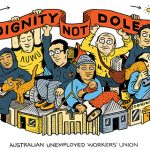Uber Drivers Are Not Employees, rules Fair Work Ombudsman

According to the ATO, “An employee works in your business and is part of your business. A contractor is running their own business.”
The characterisation has allowed businesses such as Uber, Air Tasker, Ola, Deliveroo, DiDi and Menulog to deny workers entitlements such as minimum wage, annual leave, superannuation and sick leave regardless of the hours they spend on the job each day.
In determining whether a worker is an employee, courts and tribunals have looked at a range of factors including:
- Degree of control – An employee performs work under the direction of the employer, while an independent contractor has more control on how work is done.
- Hours – an employer generally works standard hours (unless casual), while an independent contractor decides their own hours.
- Work – an employee usually has an ongoing expectation for work, while an independent contractor is engaged for specific tasks which may be ad hoc.
- Payment – an employee will usually be paid on a regular basis, while an independent contractor will give a quote, complete their specific job and then be paid via an invoice which contains their personal ABN.
- Commercial risk – an employee bears no legal risk for substandard work, other than being suspended or terminated, while an independent contractor can be sued for damages, which is why they may be required to have a separate insurance policy.
Investigation into Uber
The FWO conducted an investigation over 2 years into whether Uber was carrying on a regime of “sham contracting”; in other words, having workers undertake duties in the same manner as employees while characterising them as independent contractors to avoid paying proper entitlements.
Such conduct is prohibited under section 357 of The Fair Work Act 2009, which defines sham contracting as misrepresenting an existing or proposed employment relationship as an independent contractor arrangement, when the employer knows or is reckless as to whether there is a contract of employment.
If a workers is found to be an employee, the employer can be liable to pay them unpaid wages and benefits, and may also face fines up to $54,000 for each contravention.
The decision
However, the FWO ultimately found that the relationship between Uber and its drivers was not characterised as an employment relationship.
In reaching the decision, the FWO’s Sandra Parker noted that, “For [an employment] relationship to exist, the courts have determined that there must be, at a minimum, an obligation for an employee to perform work when it is demanded by the employer.”
The FWO examined drivers’ contracts, log-on and log-off records, interviews with drivers, ABN documents, payment statements and pricing schedules, finding that drivers are not subject to a formal obligation to perform work and that the company did not exercise enough control over them to be considered their employer.
The FWO did, however, emphasise that the decision relates only to Uber — and that it did not look into other companies in the ‘gig economy’.
That said, there is a strong argument that the rationale for the decision means that workers in similar relationships will find it difficult to be considered employees, and it is noted that Uber drivers have been denied unfair dismissal claims in 2017 and against in 2018 due to their characterisation as independent contractors.
Criticism
Uber drivers and union officials have criticised the FWO’s decision, saying the flexibility offered by Uber is superficial, especially as drivers are unable to set their own rates.
The Centre for Future Work at the Australia Institute has also weighed in, pointing out that control is exercised in subtle but very real ways, such as through threats of being “downgraded” if drivers do not accept jobs.
The think-tank’s director said that the decision has created an “enormous loophole” for other businesses to avoid paying entitlements to their workers.
“Today’s decision … is devastating for workers in the gig economy,” Transport Workers’ Union (TWU) national secretary Michael Kaine remarked.
“If this is what our laws are guiding regulators to do then these laws are hopelessly broken and the Government must act urgently to put in place rights that protect all workers.”







